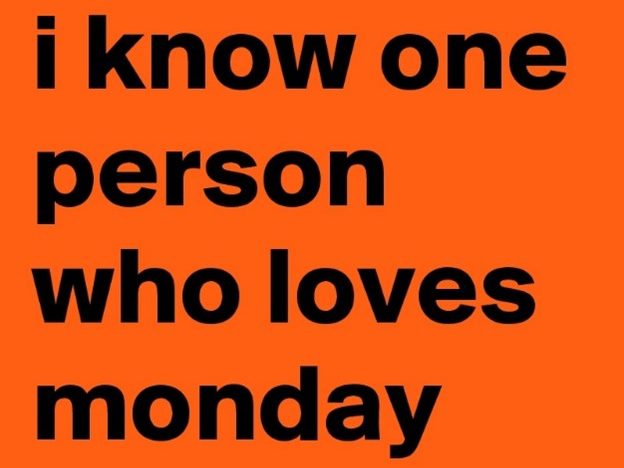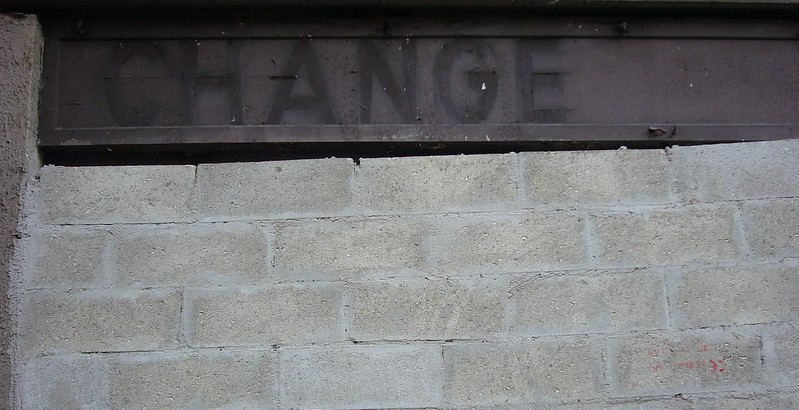We often ask ourselves questions like: “is it a good time to end this relationship?”, “is it a good time to start a new one?”, “is it a good time to change my haircut?”, “is it a good time to start saving money?”. “Is it a good time to change my job?” is on that list too. We wonder “what if”.
What if I… had another job?
… had another manager?
… moved to another city/country?
… changed my job entirely and start doing something completely new?
All of those “what ifs” are with us when we think about our perfect lives, perfect jobs or perfect managers. But “perfect” doesn’t exist – there will always be something that destroys the “perfect” view of a job we have. Too much work/too less work, too many people/too few people to do everything, too many restrictions/bureaucracies or no structure at all/total mess.
But when we think about the current situation we are in, we instinctively feel when it’s time to start looking for something new. How to know for sure? Here are some signals you can look for to answer to this important question and make a decision for yourself.
1. “OMG it’s Monday again”
When we live from weekend to weekend it’s like living from paycheck to paycheck. Or from vacation to vacation. Never happy about what it is, always dreaming about a perspective of next thing that should ease our pain somehow. When you are sick to your stomach every Sunday afternoon and at the very beginning of Monday you cannot wait until it’s Friday again, it probably means that you don’t like your job very much. Or your life in overall, it’s another angle to take a look on the situation.
All the gifs, memes and stories that are all over the internet convince us that hating Mondays is normal, all people on the planet has the same thing, right? And those who are happy and can’t wait for the new week are either crazy or workaholics.
Do you know somebody who loves Mondays? Who are they? What do they do? What decisions do they make? Are they crazy?

Source: https://boldomatic.com/p/bZUEfg/i-know-one-person-who-loves-monday
If you hate Mondays, it is the first sign that maybe it’s not about the Monday itself – it’s more about what you do everyday from Monday to Friday. How you spend your weeks? Do you do something that you’re passionate about?
2. I can’t stand people in this company
Sometimes we work in a company that has a high level of maturity. Mature, experienced people, mature organization, leadership, working processes. People don’t waste time on things that don’t matter, they focus on their job and the value that they want and should bring to the table. There are some new people, sometimes young, sometimes students that want to start their career somewhere. But in overall, people understand what we say to them.
And pretty often we work in a mess. Messy environment, processes, structures, communication flow. People are running around in circles, wasting time on things they shouldn’t even think about. They do tasks that are not even theirs.
And when you are a smart person and you work in that kind of environment, you just can’t stand some people. Their never-ending questions, over and over again about the same things. Their lack of independence, taking responsibility for what they do or finding solutions to the problems that occur. And it’s not like you don’t want to help – it’s just exhausting for you to work in that kind of organization.
When you feel that way, it might mean that you need a change of a scenery and a new place. Of course a new firm doesn’t mean that there won’t be questions. It means that you can do a fresh start, with better contracting that will prevent this feeling of frustration to happen again, at least in that scale.
3. Why it’s such a mess?
This one is kind of connected to the previous one.
If you have a strong need for structure, you will die in the organization that is messy. Literally. You’ll be frustrated all the time that you waste all of your energy on things that should be structured by a simple policy for instance.
I wrote about this several times now, but from my experience there is not a not worse things then wasted time. And wasted potential. I am personally attached to this one since I’m a really structured person and a mess in the work environment drives me crazy. I cannot work when I need to waste time on looking for the right piece of information or the right person. Or taking part in meaningless meetings where there is no takeaway, and people just meet because they suppose to be busy or something.
If you have a strong need for structure and the organization that you work within at the moment is super messy, you are on the straight path to the burnout zone. When a basic hunger is not fed, we procrastinate, looking for excuses, not acting our best selves. We self-sabotage a lot, sometimes it’s not even a conscious act, we just do it because of the helplessness of the situation. Especially when we don’t have any, or we have a little influence on what’s happening every day.
4. Why it’s so hard to make a change here?
The most common scenario: the bigger the organization, the harder is to make any change. There are more layers of approvals, more bureaucracy, more complex set of systems where the change needs to go through.
For some of us it’s fine, we are not in a rush, we can wait.
But for some, it’s infuriating. When we see that something isn’t working, and there is a way to change that, we want to act on it and fix the thing. It can be anything: a process, way of communication, product, way of working – you name it. There is always space for improvement, anything can work better. So if you are frustrated that you waste time and there is no way that it can change, that’s another signal for you that maybe this organization is not the place where you’re supposed to be.
5. Nobody sees me
A while ago I wrote an article about hungers. One of three of those is a recognition hunger. The idea about this one is built around a need of being seen, important – as a person, and as an employee. The hunger can be fed by providing recognition signs – they can be positive or negative. Regardless of their type, all people on the planet tend to get any of it, because there is not many things worse than being invisible.
If you are not seen in the organization, what is the difference between the situation where you are there and you are not? When you don’t get any feedback (positive or constructive), you are not recognized for what you do really well, nobody even says “thank you” for your work – it is not a place where you can unleash your full potential.
6. I can’t change anything I do (same task list all over again)
Regarding Transactional Analysis the goal of every human being is to live in autonomy. Autonomy is a combination of an ability to be:
- aware of who you are, what you do and when,
- spontaneous and make your own decisions,
- in a relation with other people to fully live your life.
The decision-making part is strictly connected with your ability to decide on your scope of tasks and responsibilities. Of course when you get the job connected to the certain position, you agree on a certain set of things you are going to cover on a daily basis. But if this is fixed, finite set of tasks, it never changes and you are bored to death, it’s not a good place for your mind and body.
The main question here is: do you have any influence on that? Can you change the current situation, take on new tasks or exchange some tasks with other people in a team? Maybe you can take another part of the job, like being a buddy for new joiners or a mentor?
If yes – great, talk to your manager, see what you can do and do it.
If no – you are on a straight path to the bored or to the burnout zone. Either way, it’s not a space where you want to be – there is no growth, no passion there. Do you really want to spend your life like that?
7. I don’t care
Last but not least – when you just don’t care about the job anymore, it means that it’s time. Sometimes it’s just it – you achieved everything you could’ve in a certain organization, you’ve learned everything what was possible and there is no space for more for you. And that’s okay – like we outgrow from some relationships when we grow up, we can outgrow from the organization as well.
It’s a natural process of change – it can be sad, but it is life.
The bottom line
The goal of this article is not to encourage anybody to quit their job right away. I just wanted to say that it’s important to be aware where we are in our careers, what works and what doesn’t. Based on that we can make better decisions – better not only for ourselves, but also for other people (do you like being surrounded by the burned-out people?) and for the organization too (do you like working in a firm where there are demotivated and whiny people all over the place)?
It is always a tough decision to make a change. But to move on, to grow and to be better every single day, we need to make those uncomfortable actions. We need to have courage. It’s better to be scared about not trying to change something.
Because life is too short to spend it in a job that we don’t even like anymore.




